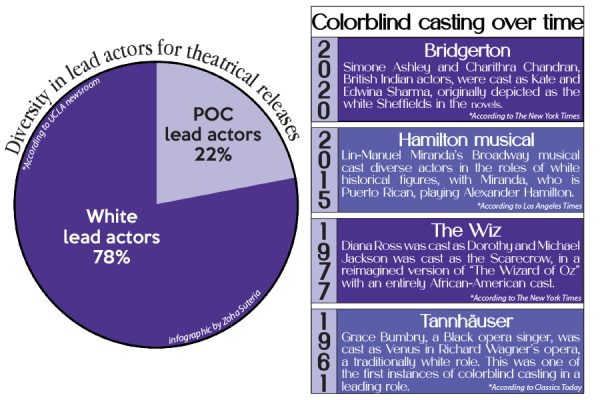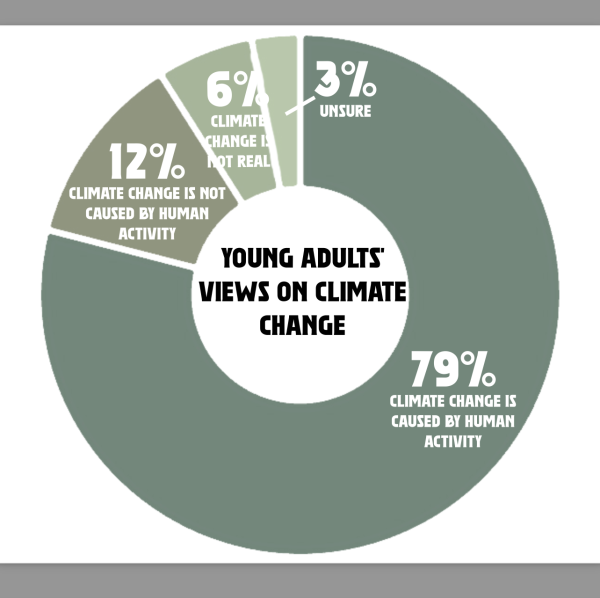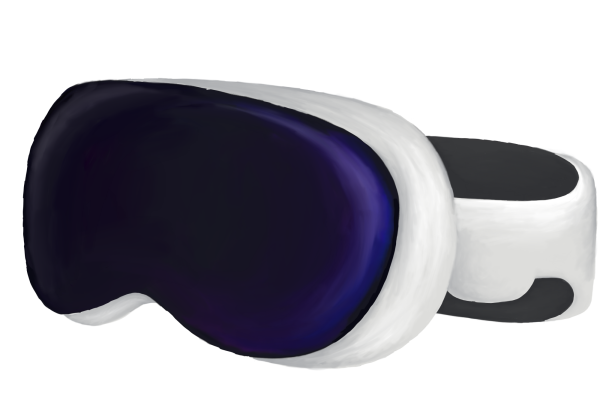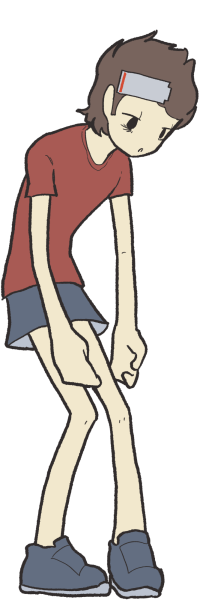Immigration impacts national identity, outlook
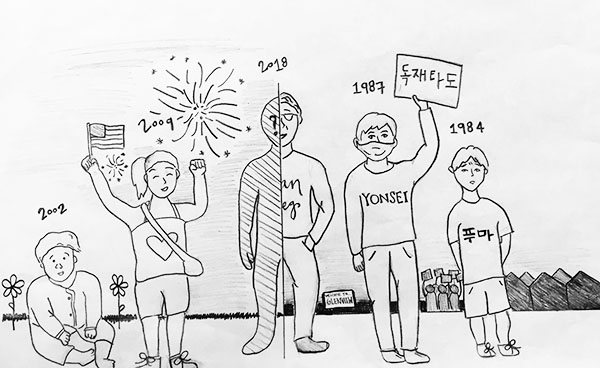
illustration by Yoon Kim
May 25, 2018
The first R-rated movie I ever watched was when I was 11-years-old. But, it wasn’t the kind of fun comedy or classic film you might imagine — it was a random Korean movie called War of the Arrows that, to my 11-year-old self, was just a two-hour-long screenplay of people stabbing each other and yelling in some kind of ancient Korean that I couldn’t understand.
I remember covering my eyes for most of the movie as I sat in the theater in complete and utter confusion, not understanding what was going on at all or why my dad would show me and my brother this kind of movie. But, this was only the beginning. Over the next few years, my dad would somehow find the most random, violent or sad Korean movies and force my family to sit together on our little couch to watch them.
To this day, my brother and I have a working list of the 20+ super-sad Korean movies that my dad has made us watch over the years. I’ve realized now, though, that the way I see these movies has changed the way I see my dad.
Last summer, my dad made me watch the Korean movie Taxi Driver with him. The film is set in 1980 Korea and covers the Gwangju Uprising, which was a student and citizen-led political demonstration against the then-ruling military dictatorship that resulted in unprecedented police brutality and the deaths of more than 200 villagers.
I had no idea what the movie was even about when I first walked into the theater and it didn’t hit me until halfway through the movie as to why my dad had taken me to see it. Gwangju was actually his hometown growing up; he was a 14-year-old boy when he witnessed the massacre for himself on May 18, 1980.
He had briefly mentioned it to me once or twice before, but it wasn’t until I saw the horror of the civilians being beaten and killed by the troops that I realized why his computer password was 0518 or why he always went to some Korean memorial every time that date rolled around. I later found out that seeing hundreds of his own townspeople being slaughtered that day with his own eyes had really scarred him.
Because of that day he had witnessed as a boy, my dad became heavily involved in pro-democratic movements throughout his college years and began leading student demonstrations against the same military dictatorship that had once ravaged his hometown. He attended Yonsei University in Korea and took part in their political student activism, which is the premise of the Korean movie called 1987 that he made me watch with him last winter.
1987 tells the story of the 1987 June Democratic Uprising in South Korea that was triggered by the government’s attempted cover-up of the death of a student protester who was drowned by the police. It was one of the most horrifying and heart-wrenching films I’ve ever seen.
As I watched scenes of students being waterboarded, civilians coughing at tear gas and parents scattering the ashes of their activist children, my eyes began to well up. But as I looked over to my left and watched my dad’s hand shake as he unfolded a drenched handkerchief from his eyes, I felt for some reason that his tears were heavier, they were deeper.
And then it hit me: the tears that were filling his eyes were not the same that were filling mine — his tears were the same tears that he had wept more than thirty years ago. I realized that it was different for my dad because he saw himself in these characters: he had been arrested in those same demonstrations; he had undergone torture in those same political prisons; he had mourned the deaths of his friends in those same funerals.
After watching these two movies, I began to see my dad as more than just someone who drops me off at school every morning and puts food on my table every night. I realized that he’s a human being, just like I am — one who has emotions, scars and a story that might not be ready to be told yet.
I don’t know why it took 16 years and two Korean movies for me to realize this, but I now try to remember these things whenever I can —whenever I find myself getting impatient with him, whenever I come downstairs to a slightly-burnt meal, whenever I type that four-digit password into his computer.






